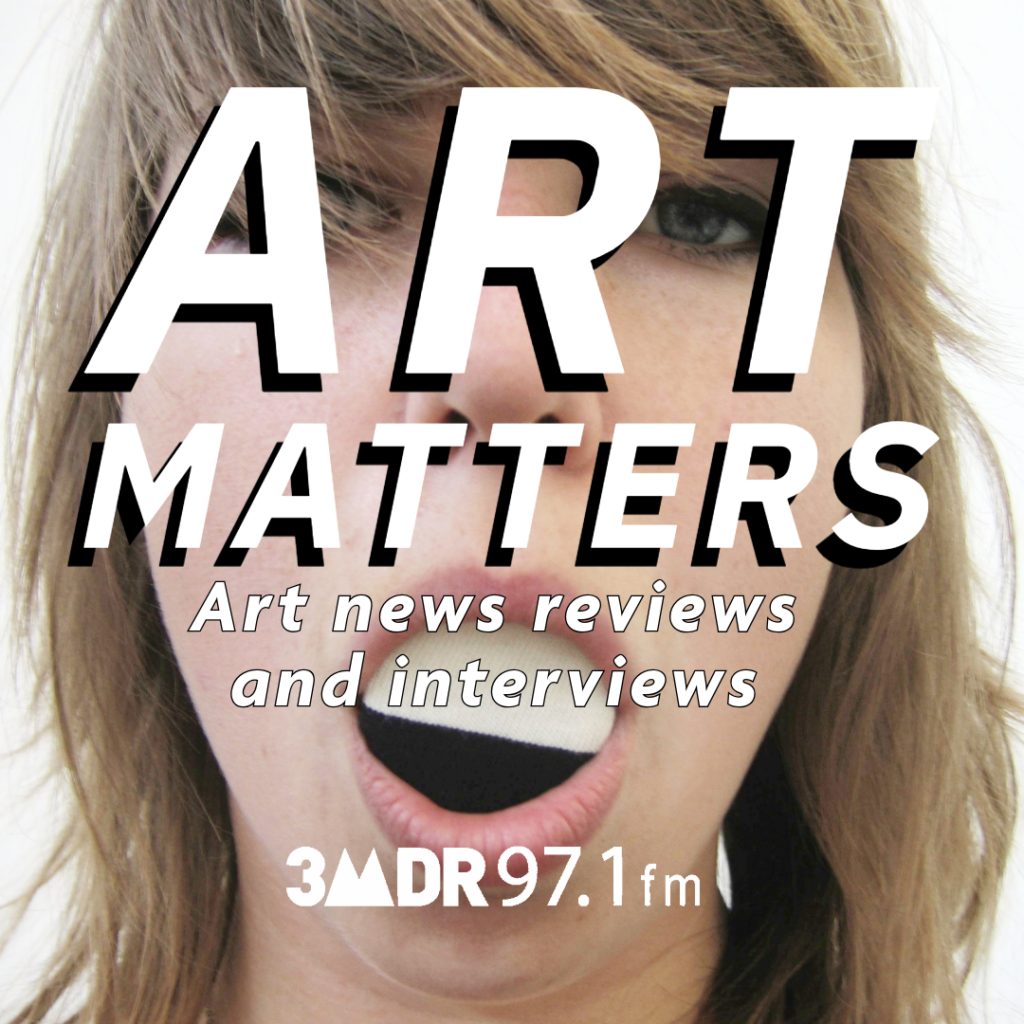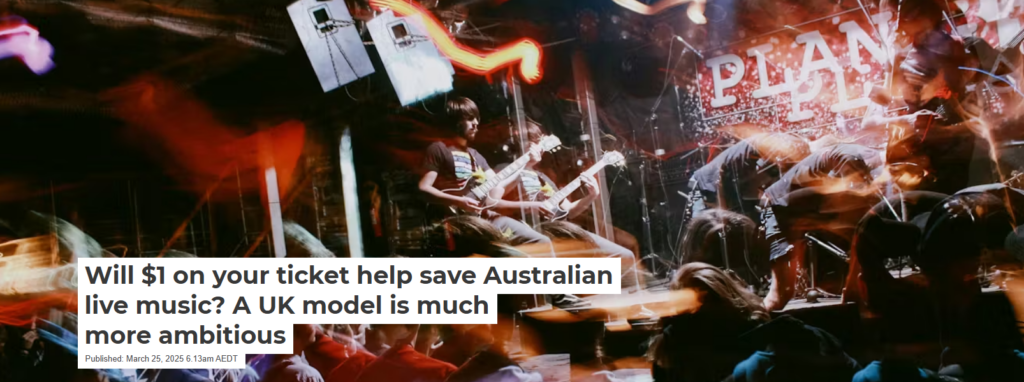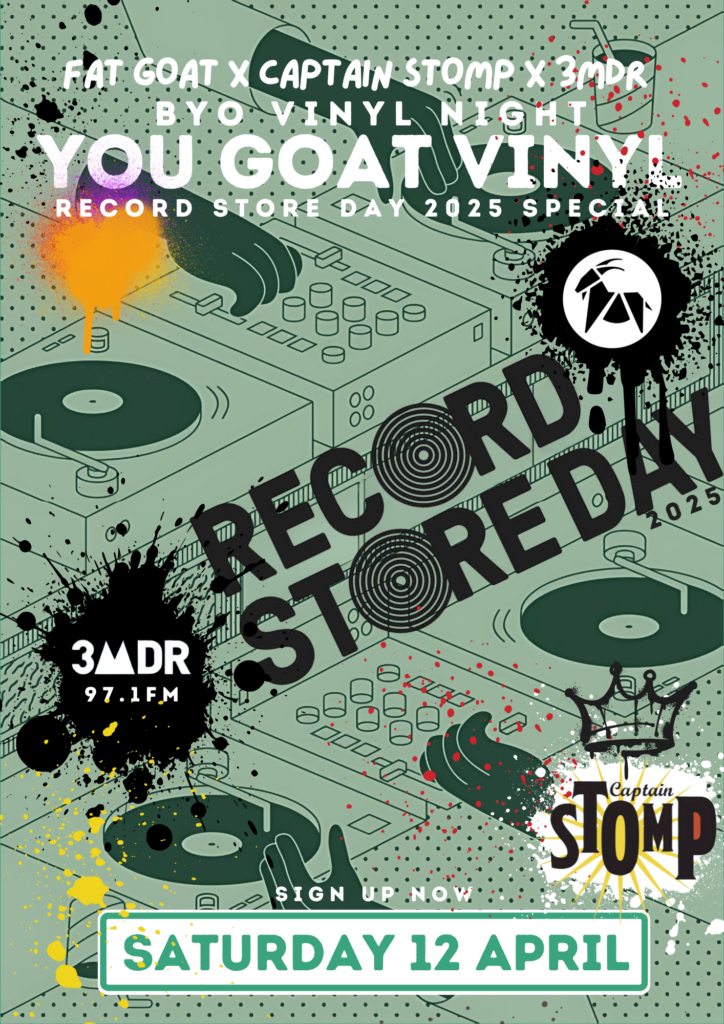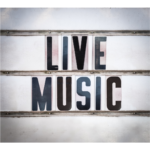Am I Ever Gonna See You Live Again?
Written by 3MDR on April 4, 2025
From: Parliament of Australia Inquiry into the challenges and opportunities within the Australian live music industry.
“Am I Ever Gonna See Your Face Again?” by The Angels is an Aussie rock classic that is testament to the awesome power of live performance.
Originally written by Doc Neeson as a slow ballad exploring themes of grief and loss it was released as the band’s debut single in 1976 and sputtered to 58 on the charts.
But in the early 1980s, something strange happened. Neeson would sing the song at live shows and in the pause after the eponymous question was asked, an expletive-laden chorus would ring out from the audience: “No way, get beeped, beep off!” (good manners and parliamentary standards dictate that I replace the actual word with beep).
Reports are that Neeson wasn’t initially thrilled with the fans’ hijacking of his song, but the die was cast. Whenever and wherever it was sung, the chorus was taken up with gusto by the crowd and it soon became a staple.
“Am I Ever Gonna See Your Face Again?” may have been written by Doc Neeson but the audience took ownership in a way that could only have happened live. Theories abound as to the origins of the chorus – one suggests a Blue Light Disco DJ encouraged young teenagers in western Sydney to chant it, while others say it was a drunken reveller in a WA pub who first yelled it out – but the uncertainty only adds to the mystique.
A live version of the song – crowd chorus included – was released in 1988 and it reached 11 on the charts. In the decades since, the song has been added to Australia’s pantheon of legendary music, in no small part due to that audience chorus.
If the song had never been played live, it simply wouldn’t be the same.
The name of this report is an unashamed remix and resampling of Neeson’s iconic work, though we’ve included a chorus somewhat more positive and less likely to cause swooning amongst the delicate.
Our committee was tasked with exploring what’s going on in live music in Australia. What are the challenges and, importantly, what’s the path forward to ensure live music can enjoy a strong and sustainable future.
The challenges are many and varied, and were well articulated by the many witnesses who provided evidence. We’re undoubtedly seeing tectonic shifts in the economics of music and in the relationships between fans and musicians, largely driven by technological disruption.
For example, it used to be that bands would make their money from selling singles and albums. Tours were treated as loss-leaders: unprofitable ventures worth doing because they opened the bands up to new and bigger audiences, who would then buy more records.
Pubs would get musicians in to play because their audiences would buy beer.
But now we don’t buy music, we pay a monthly subscription to stream it, and musicians only make fractions of a cent when their licensed songs are played. So tours and ticket sales are now vital to earning a quid and making a living.
There are fewer pubs willing to accommodate live acts and those who do make less money because drinking habits have changed.
Making money from playing music has always been hard but it’s harder now than ever.
But there’s also opportunity, and young, innovative artists are finding their way to make a living. Relationships with audiences are more direct and can be more authentic – traditional powerbrokers have less authority; the music executives, the producers, the FM DJs can’t make or break artists in the way they used to (Spiderbait’s Buy Me a Pony comes to mind). Artists can have more control over their art and – importantly – their own merchandising and image.
The big commercial festivals are falling over but many smaller, grassroots, community led festivals are flourishing. The challenge is how to encourage this, while ensuring the musicians who play at them do so in a way that allows them to pay their bills.
We’ve come up with a bunch of recommendations we think will help.
This was a long inquiry, longer than we expected it to be, but we went over a lot of ground. It’s clear a lot of people are doing a lot of work in the live music space to ensure it has a strong future. State governments, some councils and advocacy organisations are doing really impressive work and are, by and large, on the same page.
We’ve recommended that more work be done to encourage an appreciation of music education, mainly because it’s great for kids’ brains, but also because it fosters a love of music that will remain into adulthood, creating a new generation of music appreciation. Of all the recommendations we’ve made, that to me is the most important: teach kids how to play music, not just how to stick airpods in their ears.
Finally, I’d like to thank the witnesses who gave evidence at hearings and who took the time to make thoughtful submissions, the committee secretariat who pulled this enormous amount of work together, and my committee colleagues for their constructive input.
As I’m not recontesting at the election, this will be my last report as Committee Chair and as a Member of the Federal Parliament. On that note: be excellent to each other, and party on, dudes.
Brian Mitchell MP
Chair





